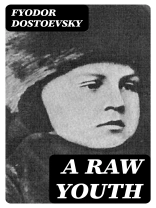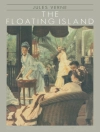In ‘A Raw Youth, ‘ Fyodor Dostoevsky delves into the tumultuous lives of youth caught in the throes of existential uncertainty and moral degradation. This novel, characterized by its psychological depth and complex characterizations, is written in Dostoevsky’s signature style of exploring the darker aspects of human nature through vivid dialogue and introspective monologues. Set against the backdrop of 19th-century Russia, the narrative intricately weaves themes of family, societal pressures, and the quest for identity, illuminating the struggles faced by the youthful protagonist and his peers in a rapidly changing world. Fyodor Dostoevsky, a prominent figure in Russian literature, was profoundly influenced by his own tumultuous life experiences, including his time spent in Siberian exile and his encounters with radical ideas of his era. His philosophical musings and exploration of the dichotomy between good and evil are at the forefront of ‘A Raw Youth, ‘ reflecting his deep understanding of the societal challenges confronting the youth of his time. These themes resonate with Dostoevsky’s earlier works, showcasing his evolution as a writer dedicated to unraveling the complexities of the human soul. ‘A Raw Youth’ is a compelling read for those intrigued by the psychological intricacies of youth and the philosophical questions that arise in search of purpose. This novel not only serves as a significant commentary on the uncertainties of adolescence but also invites readers to engage with their own ethical dilemmas. As a pivotal work in Dostoevsky’s oeuvre, it is essential for anyone seeking to comprehend the confluence of personal and societal conflict in literature.
Giới thiệu về tác giả
Fyodor Mikhailovich Dostoevsky (1821–1881) stands among the most profound and influential novelists in Russian literature. His literary works explore human psychology within the troubled political, social, and spiritual atmospheres of 19th-century Russia. Dostoevsky’s oeuvre consists of 11 novels, three novellas, 17 short stories, and numerous other works. ‘A Raw Youth’ (also known as ‘The Adolescent’ or ‘An Accidental Family’), written in 1875, continues his deep exploration of the human psyche, focusing on the turbulent life and development of its adolescent protagonist, Arkady Dolgoruky. Like many of Dostoevsky’s novels, ‘A Raw Youth’ examines themes of existentialism, the nihilistic age, and the clash between generations. Dostoevsky’s literary style is characterized by its idiosyncratic use of dialogue, an engagement with philosophical and ethical dilemmas, and profound psychological insight into his characters. Fyodor’s most eminent works, such as ‘Crime and Punishment’, ‘The Idiot’, ‘Demons’, and ‘The Brothers Karamazov’, not only reflect his encyclopedic understanding of human nature but also underscore his contributions to existentialism and psychoanalysis. His novels are often cited for their preternatural ability to encapsulate the human experience, with a narrative appeal that transcends cultural and temporal boundaries.












